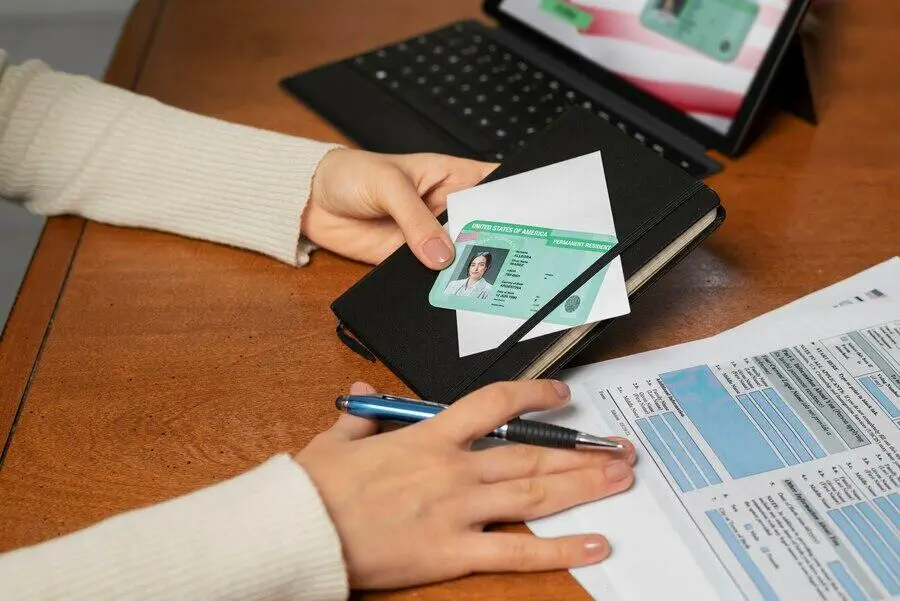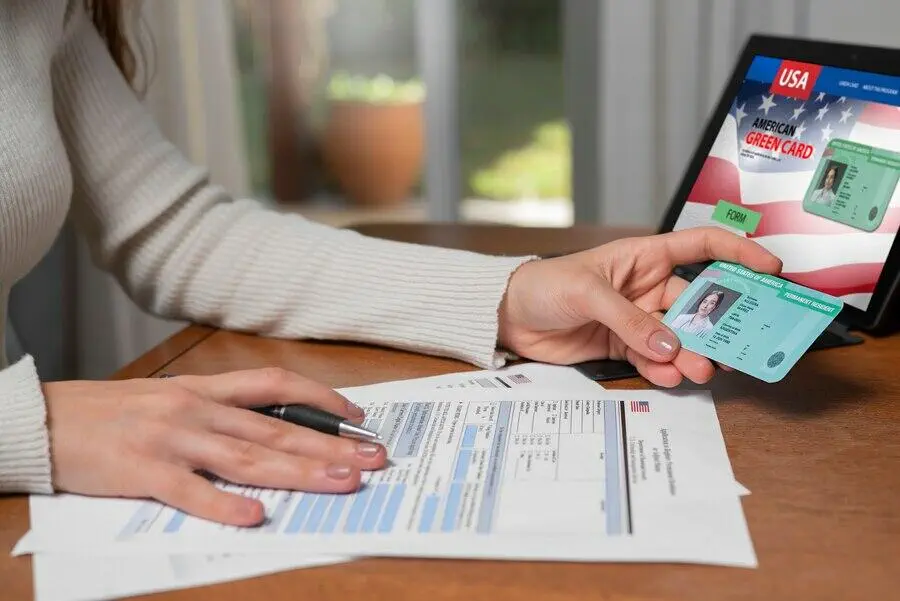Introduction
A visa refusal from the Department of Home Affairs (DOHA) can be a deeply concerning event, and the prospect of challenging this decision through an appeal to the Administrative Review Tribunal (ART) may seem daunting. Consequently, many individuals question whether they should use an immigration lawyer to navigate this complex visa appeal process after a negative decision has been made.
This guide is designed to help you understand the crucial role a representative, such as an immigration lawyer or registered migration agent, can play in your ART appeal. It will explore the significant advantages of obtaining professional legal advice and assistance, thereby empowering you to make a well-informed choice about representation for your application for review, which can be pivotal for a successful appeal.
Who Can Represent You in Your ART Visa Appeal?
When you are considering an appeal to the ART after a visa refusal or cancellation, you have the option to appoint a representative to help with your case. While you can appoint any individual, such as a family member or sponsor, only specific professionals are legally permitted to provide ‘immigration assistance’.
This term, as defined under the Migration Act 1958 (Cth), refers to using knowledge or experience in migration procedure to assist with preparing for a review or representing you.
The two main professional options for representation in your ART visa appeal are:
- Registered Migration Agents: These professionals are trained in Australian migration law and procedure. They can use their knowledge, skills, and experience to:
- Review your case
- Advise on your prospects
- Prepare written submissions
- Communicate with the ART
- Immigration Lawyers: These legal professionals also possess expertise in immigration law and can:
- Offer similar services to a Registered Migration Agent (RMA)
- Prepare your case
- Lodge the appeal
- Represent you
In some instances, particularly at hearings, a lawyer may have a broader capacity to formally address the tribunal compared to an RMA.
What are the Benefits of Engaging an Immigration Lawyer or RMA for Your ART Appeal?
You Access Expert Knowledge of Immigration Law & ART Procedures
Engaging an immigration lawyer or an RMA for your ART appeal provides you with access to professionals trained in the intricacies of Australian migration law. These experts possess up-to-date knowledge of constantly evolving legislation, government policies, and ART procedures, which is crucial when dealing with a visa refusal.
Their expertise offers several advantages:
- Understanding how DOHA interprets and applies migration law
- Access to departmental policies not publicly available
- Ability to interpret how complex laws apply to your specific situation
Your lawyer’s expertise is particularly beneficial in navigating the often-overwhelming bureaucracy and frequent modifications within immigration law.
You Enjoy Persuasive Submissions & Strategic Preparation of Your Appeal
One of the primary benefits of professional representation is the strategic preparation of your visa appeal. An immigration lawyer or migration agent will thoroughly research your case, ensuring that your arguments are presented in the most compelling way to the ART. This involves preparing strong written submissions that clearly address the reasons for your visa refusal or visa cancellation.
These submissions are a key aspect of your appeal and are crafted to:
- Address refusal reasons: Clearly and directly respond to the specific grounds on which the visa decision was made by DOHA
- Include case law: Utilise relevant case law and legal precedents to support your arguments, which requires in-depth legal research into decisions made by the ART and courts like the Federal Court of Australia
- Provide strong evidence: Gather and present robust documentary evidence, which may include expert reports, to substantiate your claims and strengthen your application for review
- Refer to departmental policy: Leverage knowledge of internal Departmental policies to build a comprehensive and well-researched case, even though the ART is not bound by these policies
- Present persuasively: Formulate clear and persuasive arguments based on all available information to maximise the chances of a successful appeal, potentially leading to the Tribunal member setting aside the decision without a hearing
You Can Navigate ART Procedures & Meet Appeal Deadlines
The ART imposes strict time limits for lodging an application for review, and the tribunal generally has no discretion to make exceptions if these deadlines are missed. Failing to meet these time limits can mean losing your opportunity to appeal the visa refusal.
An immigration lawyer or migration agent plays a critical role in managing these procedural complexities by:
- Advising on the specific deadline applicable to your case, as times can vary
- Preparing and lodging all necessary appeal forms accurately
- Ensuring all documentation meets ART’s requirements, thus avoiding unnecessary delays or the risk of your application being deemed invalid
- Monitoring the progress of your appeal and communicating with the ART on your behalf
You Secure Skilled Advocacy & Support for Your ART Hearing
Should your ART appeal proceed to a hearing, an immigration lawyer or migration agent can provide effective advocacy and invaluable support. While a migration agent can accompany you to offer advice and support, an immigration lawyer can more formally address the hearing and present oral arguments on your behalf if permitted by the Tribunal member.
Their presence can help you feel more confident and assured during what can be a stressful experience. A representative’s role during the hearing process includes:
- Presenting your case: Clearly outlining the main issues in your review and speaking on your behalf
- Preparing you and witnesses: Conducting mock interviews to prepare you for questions and helping your witnesses prepare their testimony to be presented to the Tribunal
- Ensuring a fair hearing: Advocating for your rights and ensuring that all ART procedures are correctly followed
- Responding to questions: Assisting you in responding to questions posed by the Tribunal Member, ensuring your answers are accurate and effectively address any concerns
- Summarising arguments: Providing a concise summary of your main arguments after the hearing
Speak with an AFSL Lawyer Today
Request a Consultation to Get Started.
Do You Need an Immigration Lawyer for Your Visa Appeal?
Evaluate the Complexity of Your Visa Refusal Case & When Legal Help is Essential
Determining whether your visa refusal warrants legal assistance hinges on the intricacies of your specific situation. Legal assistance from an immigration lawyer becomes particularly crucial when your visa application has been denied due to complex legal issues or if you have a history of previous visa refusals or cancellations.
For instance, if your visa refusal is based on character grounds, health issues, or subtle documentation discrepancies, the expertise of an immigration lawyer is invaluable.
Legal help is also highly recommended in the following circumstances:
- Previous visa denials or problematic immigration history: If you have faced visa refusals before, or if your immigration history is not straightforward, navigating the appeal process can be challenging without expert guidance.
- Criminal record: A criminal history can significantly complicate a visa application and subsequent appeal, making legal advice essential.
- Complex legal interpretations: When the visa decision involves nuanced interpretations of immigration law, or if there are allegations of misrepresentation or national security concerns, an immigration lawyer’s understanding of legal arguments and precedents is vital.
- Language barriers: If you are not confident in your English language skills or your ability to articulate a coherent legal argument, a representative can bridge this gap.
- High stakes: When the outcome of the visa appeal is critical, such as facing deportation, separation from family, or if it’s your last viable option to remain in the country, the support of an immigration lawyer is strongly advised.
Weigh Representation Costs Against the Potential Impact of Your Appeal Outcome
The financial investment for engaging an immigration lawyer or RMA for your visa appeal is an important consideration. Costs can vary significantly based on your specific needs and the complexity of your case.
Initial consultations may range from being free to around Australian Dollars (AUD) 400, while ongoing services might be charged through:
- Hourly rates, typically between AUD 250 and AUD 500
- Fixed-fee arrangements, with ART cases starting from AUD 5,000
- Partner visa applications ranging from AUD 5,000 to AUD 9,900 for simpler cases
- Complex matters potentially costing between AUD 5,500 and AUD 10,000
It is also important to factor in additional expenses such as government surcharges, visa-specific lodgement fees, and disbursements for services like police checks or translations.
When considering these costs, it is essential to weigh them against the potential impact of your visa appeal outcome. A successful appeal, facilitated by expert legal representation, can mean the ability to live and work in Australia, reunite with family, or secure protection—outcomes whose value often transcends monetary figures.
Conversely, an unsuccessful appeal can lead to significant personal and financial costs, including:
- The possibility of having to leave the country
- The emotional toll of family separation
- Lost employment or educational opportunities
- The expense of any future attempts to secure a visa
While the upfront cost of an immigration lawyer might seem substantial, the long-term benefits of a successful visa appeal and the avoidance of negative consequences often justify the investment, particularly in complex or high-stakes situations.
Understand the Challenges & Risks of Self-Representation
While you have the option to represent yourself in an ART appeal, it is important to understand the significant challenges and risks involved. The ART expects self-represented applicants to comprehend and navigate immigration law, tribunal procedures, and evidentiary requirements to the same standard as a qualified immigration lawyer or RMA. This can be a daunting task without formal legal training.
Attempting to manage your visa appeal can present several difficulties:
- Lack of Legal Knowledge: Immigration law is complex and subject to frequent changes. Misinterpreting legal requirements or failing to identify crucial legal arguments can severely weaken your appeal.
- Procedural Errors: The ART has strict procedural rules, including deadlines for lodging documents and specific formatting requirements. Mistakes in your application or a failure to meet these deadlines can lead to your appeal being dismissed without consideration of its merits. For example, an error in the initial review application form could deem it invalid, requiring re-application if the deadline has not passed.
- Ineffective Case Presentation: Without experience in legal argumentation, you might struggle to present your case persuasively, gather the most relevant supporting evidence, or effectively counter the reasons for your visa refusal.
- Emotional Toll: The visa appeal process is often stressful. Personal emotional involvement can make it difficult to remain objective and make strategic decisions, potentially hindering the effective presentation of your case.
- Lower Chance of Success: Statistical information and expert advice often suggest that applicants with professional legal representation tend to have a higher success rate in visa appeals compared to those who represent themselves, especially in complex cases.
- Severe Consequences of Failure: If your self-represented appeal is unsuccessful, it can have serious and long-lasting implications, including deportation, re-entry bans, and difficulties with future visa applications.
Speak with an AFSL Lawyer Today
Request a Consultation to Get Started.
How Do You Choose the Right Representative for Your Appeal?
Verify Credentials, Specialisation & Relevant Experience in Visa Appeals
When selecting an immigration lawyer or RMA for your visa appeal, verifying their credentials and experience is a crucial first step.
For proper verification, ensure:
- Migration agents are registered with the OMARA—you can check an agent’s registration status on the OMARA website
- Immigration lawyers are admitted to practice by their respective state or territory legal professional body
- Ideally, they should be accredited specialists in immigration law
Beyond basic registration, inquire about their specific experience with ART appeals, formerly known as Administrative Appeals Tribunal (AAT) appeals. It’s beneficial to find a representative who has a strong track record with the type of visa refusal you are facing.
You can ask about:
- The number of similar visa appeals they have handled
- Their familiarity with the specific grounds of your visa refusal
- Their success rates in comparable cases, while understanding that past success doesn’t guarantee future outcomes and ethical representatives will not make such guarantees
Relevant experience with the ART and your specific visa category will mean they are familiar with the tribunal’s procedures and expectations, which can be invaluable for your application for review.
Inquire About Their Approach to Appeals & Communication Style
Understanding a potential representative’s approach to handling a visa appeal and their communication style is vital for a productive working relationship. During your initial consultation, ask how they typically strategise for appeals similar to yours. This includes their methods for gathering evidence, preparing written submissions, and representing clients at tribunal hearings.
Effective communication is key throughout the appeal process. Therefore, clarify the following:
- How frequently you can expect updates on your case
- Who will be your primary point of contact within the firm
- How they prefer to communicate (e.g., email, phone)
- Their responsiveness to queries
A good representative will explain complex legal matters in plain language, ensuring you understand each step of your visa appeal. You should feel comfortable with their approach and confident in their ability to manage your case effectively before the ART.
Clarify Fee Structures & Obtain a Comprehensive Agreement for Your Appeal
Before engaging an immigration lawyer or migration agent, it is essential to fully understand their fee structure and all potential costs associated with your visa appeal.
Representatives may charge for their services in various ways, including:
- Hourly rates: Where you are billed for the actual time spent on your case. These rates can vary, often between AUD 250 and AUD 500.
- Fixed fees: A set cost for handling the entire appeal or specific stages. For ART cases, fixed fees might start from AUD 5,000, but complex matters can range from AUD 5,500 to AUD 10,000 or more.
Always request a detailed written costs agreement or engagement letter. This document should clearly outline:
- The scope of services to be provided (e.g., preparation of submissions, representation at the tribunal hearing, post-decision advice)
- The fee structure and total estimated cost
- Any additional costs you might incur, such as government surcharges, visa-specific lodgement fees for the application for review (the ART fee is currently around $3,496 for most applications, with potential reductions for financial hardship), or disbursements for services like police checks, translations, or expert reports
It is advisable to compare quotes and services from a few different representatives to ensure you are receiving fair value. Transparency in all financial dealings is crucial to avoid misunderstandings during the often-stressful visa appeal process.
Speak with an AFSL Lawyer Today
Request a Consultation to Get Started.
What Should You Expect from the ART Appeal with Your Representative?
Schedule an Initial Consultation & Strategically Assess Your Visa Appeal
The first step in engaging an immigration lawyer or RMA for your ART appeal is typically an initial consultation. During this meeting, your representative will review your visa refusal decision and discuss the details of your case. This allows them to provide an initial assessment of the merits of an appeal.
A crucial part of this stage is the strategic assessment of your visa appeal. Your chosen legal professional will:
- Analyse the reasons provided by DOHA for the visa refusal, looking for potential errors of fact or law.
- Advise you on your prospects of success should you decide to proceed with an application for review.
- Discuss matters relating to your current visa status and explore any alternative visa options that might be available to you.
- Explain the ART review process, including applicable procedures, strict time limits for lodging the appeal, and potential fees involved.
- Identify the key issues in your case and begin to formulate a strategy for how to best address the refusal.
Lodge the Appeal & Prepare Submissions for the ART
Once you decide to proceed with the visa appeal, your representative will manage the critical task of lodging the application for review with the ART. This involves ensuring all necessary forms are completed accurately and submitted strictly within the prescribed time limits, as missing a deadline can mean losing your right to appeal the visa refusal. Your representative will also formally notify the ART that they are acting on your behalf.
Following lodgement, meticulous preparation of written submissions is a cornerstone of your representative’s work. These submissions are your opportunity to argue why DOHA’ decision was incorrect. A well-prepared submission by an immigration lawyer or migration agent will typically:
- Clearly address each reason for the visa refusal or visa cancellation.
- Cite relevant case law, legislation (such as the Migration Act 1958 (Cth) where applicable), and departmental policies to support your arguments. This often involves in-depth legal research into decisions made by the Tribunal and courts like the Federal Court of Australia.
- Present strong documentary evidence to substantiate your claims, which may include witness statements or expert reports. Your representative will guide you in gathering all necessary supporting documents.
- Refer to internal Departmental policies, which, although not binding on the ART, can be influential in demonstrating how migration law is typically interpreted and applied.
- Formulate persuasive arguments designed to convince the Tribunal member to set aside the original decision.
In some instances, strong and comprehensive written submissions can lead to the Tribunal making a favourable decision “on the papers,” meaning without the need for a formal hearing. Your representative will also manage all communications with the ART and may request access to the Department’s files related to your visa application to ensure all relevant information is considered.
Prepare for & Receive Strong Advocacy at Your ART Hearing
If the ART determines that a hearing is necessary for your visa appeal, your immigration lawyer or RMA will provide crucial support and representation. The nature of this representation can differ slightly; an immigration lawyer can usually formally address the hearing and present oral arguments, while an RMA may primarily offer advice and support, speaking only if requested by the Tribunal member.
Leading up to the ART hearing, your representative will help you prepare. This preparation often includes:
- Conducting mock interviews to familiarise you with the types of questions that may be asked.
- Assisting any witnesses you intend to call in preparing their testimony to be presented effectively to the Tribunal.
- Explaining the hearing procedure so you know what to expect on the day.
During the hearing itself, your representative’s role is to advocate zealously on your behalf. This involves:
- Presenting the main issues of your review and speaking on your behalf to articulate your case clearly.
- Guiding you in presenting your oral evidence and responding to questions from the Tribunal member.
- Asking questions of any witnesses, if applicable.
- Ensuring that you receive a fair hearing and that all ART procedures are correctly followed, advocating for your rights throughout the process. For example, they will observe that the Tribunal Member conducts the hearing appropriately.
- Providing a summary of your main arguments after the hearing.
Understand Your ART Decision and Explore Your Next Steps
Once the ART has decided on your visa appeal, your immigration lawyer or RMA will play a vital role in explaining the outcome and its implications. The ART will send you a letter detailing its decision, and your representative will help you understand the reasons behind it.
If the ART sets aside the original visa refusal, your representative will advise on the next steps, which may involve DOHA finalising your visa application. The case might be sent back to the Department for further processing in accordance with the Tribunal’s findings.
However, if the visa appeal is unsuccessful and the Tribunal affirms the decision made by the Department, your representative will discuss potential further options. These may include:
- Appealing to a court on a question of law: In some circumstances, you may be able to appeal the ART’s decision to the Federal Circuit and Family Court of Australia or the Federal Court of Australia. Such appeals are generally restricted to instances where the Tribunal is alleged to have made a legal mistake, and strict time limits (often 35 days from the date of the decision) apply.
- Ministerial Intervention: In limited and exceptional circumstances, it may be possible to request the Minister for Immigration to intervene in your case.
- Exploring other visa pathways: Your representative can assess if you might be eligible for any other type of visa.
Speak with an AFSL Lawyer Today
Request a Consultation to Get Started.
Conclusion
Engaging an experienced immigration lawyer or RMA for your ART appeal offers significant advantages, from navigating complex immigration law and ART procedures to strategic case preparation and effective advocacy at hearings. Understanding who can represent you, assessing the complexity of your visa refusal, and carefully choosing the right professional are crucial steps in strengthening your application for review and maximising your chances of a successful outcome after a visa decision by DOHA.
If you are facing a visa refusal in Adelaide and considering an appeal to the ART, contact Moya Migration Law today. Our experts offer trusted expertise and specialised services tailored to your needs, providing tailored strategies and hands-on advocacy to help you navigate this complex process and secure your best possible outcome.
Frequently Asked Questions (FAQ)
While you can represent yourself in a visa appeal before the Administrative Review Tribunal (ART), statistics and expert advice suggest that engaging a qualified immigration lawyer or migration agent significantly increases your chances of success. This is due to the complexities of immigration law and Tribunal procedures.
The cost of hiring an immigration lawyer or migration agent for an ART visa appeal varies depending on the complexity of your case and the representative’s experience. Fees can be structured as fixed fees or hourly rates, and it is essential to obtain a clear written agreement detailing all costs upfront.
Both immigration lawyers and registered migration agents (RMAs) are qualified to provide immigration assistance and represent you in your ART visa appeal. Lawyers possess broader legal training and can typically offer more extensive representation in hearings, while RMAs are specialists in migration law and procedure; both must be registered with their respective authorities.
The ART imposes strict time limits for lodging a visa appeal. If you miss this deadline, you will generally lose your opportunity to have the visa refusal reviewed by the Tribunal, as they have very limited discretion to make exceptions.
No ethical immigration lawyer or migration agent can guarantee a successful outcome for your visa appeal, as the decision ultimately rests with the Tribunal Member based on the specific facts, evidence, and legal arguments presented. A representative’s role is to build the strongest possible case on your behalf.
You will typically need to provide your visa refusal letter, a copy of your original visa application, and any supporting documents you submitted. Your immigration lawyer or migration agent will then guide you on any additional specific evidence or information required to strengthen your appeal to the ART.
The processing time for an ART visa appeal can vary significantly depending on the complexity of the case, the Tribunal’s workload, and the type of visa, with some appeals taking more than a year to be finalised. Your representative will manage the process efficiently, but the Tribunal largely determines the timeframe.
While friends or family members can provide emotional support, only an RMA or a qualified immigration lawyer can legally provide ‘immigration assistance’ and formally represent you in your ART visa appeal. This is particularly true if they are charging a fee or do so as part of a profession.
Lorem ipsum dolor sit amet, consectetur adipiscing elit, sed do eiusmod tempor incididunt ut labore et dolore magna aliqua. Ut enim ad minim veniam, quis nostrud exercitation ullamco laboris nisi ut aliquip ex ea commodo consequat.










